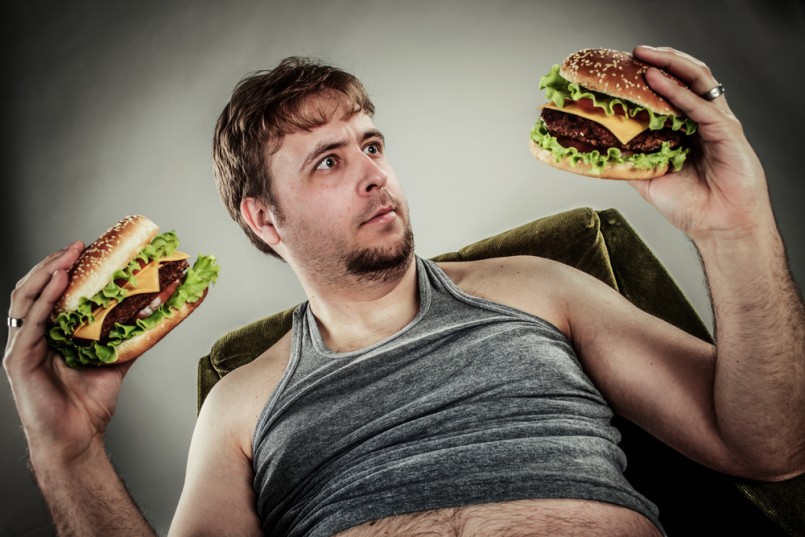
One of my biggest hurdles when I first jumped aboard the Fitness Train™ was giving up all those amazing sweet, salty and fatty treats I used to love. Going without potato chips or chocolate bars and snubbing my favourite fast food joints took nothing short of Herculean effort and determination. If you’re familiar with the “diet vs. cake” dilemma yourself, you’ll know exactly what I’m talking about.
But is it all for nothing?
A recent study from Cornell University looked at the link between obesity rates and junk food, and the findings suggest we might be torturing ourselves needlessly. Researchers discovered that contrary to popular belief, no link could be established between a person’s weight and the amount of candy, soda or other desserts they ate.
So that’s the all clear to eat junk food whenever we want from now on, right? Ummm… not quite. Let’s take a closer look at this study and see what the implications are:
What Actually Happened?
The researchers used weight and diet information taken from a survey conducted by the CDC to assess whether a correlation exists between people’s eating habits and their body mass index (BMI). They found that for all but the most under- and overweight people, the frequency of junk food consumption was more or less the same across the board—in other words, those in the overweight-to-obese BMI ranges were eating no more junk food than individuals in the normal range.
The findings suggest that junk food cannot be held solely responsible for rising obesity rates, because people at a healthy weight tend to eat it just as often as their chunkier counterparts. Therefore, any weight loss plan or dietary policy that focuses on demonising these foods will ultimately prove ineffective, as there must be other factors that contribute to weight gain.
Why Do We Get Fat Then?
The short answer is: it’s complicated. The researchers themselves concluded that other factors such as lack of exercise or nutritious, healthy food in the diet (like veggies or lean protein) would probably have more of an impact on a person’s body composition than whether or not they eat junk food.
In my experience, it goes even further than that. If you’re overweight, it’s because there are a range of psychological, emotional, social and environmental issues working against you. Weight gain is the product of your eating habits and lifestyle choices, which become embedded and reinforced over time. It’s not just a clean-cut case of saying “don’t eat junk food.”
Where to Go from Here
First of all, don’t take the findings of this study as a green light to go ahead and eat all the crap you want. It’s worth noting that the extremely under- and overweight individuals in the study group were those who ate more junk food. This clearly shows that forgoing nutritious food in favour of donuts and pizza is bad news for your health and weight, either way. Junk food should still be heavily moderated, because it offers little to no nutritional value and displaces healthier stuff like vegetables, fruit and protein.
But the main takeaway is this: getting lean and healthy is not simply a question of cutting out the “wrong” foods, it’s about changing your whole attitude and lifestyle for the better.
Q: Do you think junk food can still be part of a healthy diet or not? Let us know in the comments below!
 David Carroll is a freelance writer, self-published author, and chief health-nut at thepaleotoolkit.com. Outside of work, he loves hurling (an amazing Irish sport), playing video games and hanging out with his dogs. Follow him on Twitter (@DavidAshCarroll) and Google+.
David Carroll is a freelance writer, self-published author, and chief health-nut at thepaleotoolkit.com. Outside of work, he loves hurling (an amazing Irish sport), playing video games and hanging out with his dogs. Follow him on Twitter (@DavidAshCarroll) and Google+.


